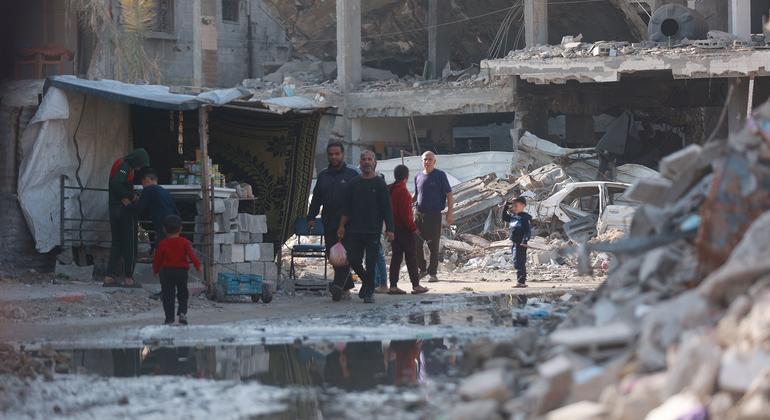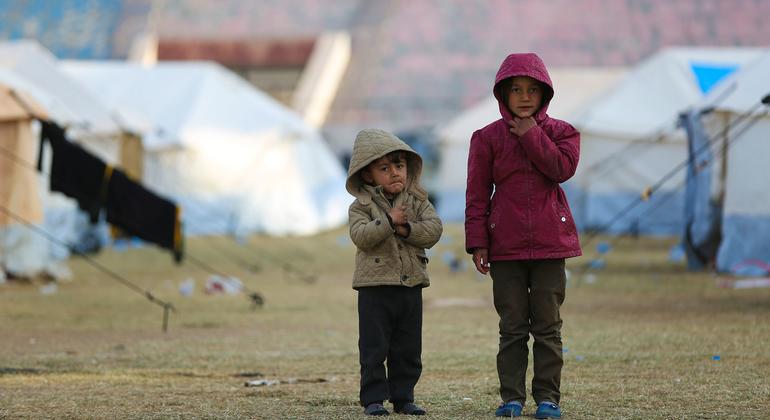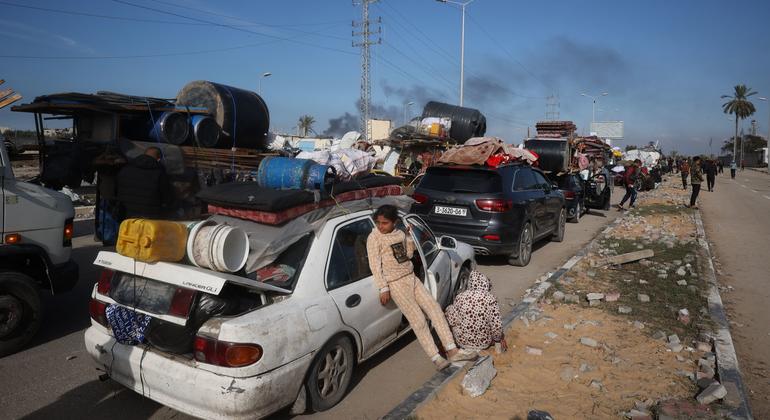Speaking at the launch of UNCTAD’s 2025 Report on the Economy of the Occupied Palestinian Territory, the agency’s Deputy Secretary-General Pedro Manuel Moreno said decades of movement restrictions, combined with the latest military operations, had “wiped out decades of progress” and left both Gaza and the West Bank facing long-term devastation.
“What we see today is extremely worrying,” he said. “Gaza is going through the fastest and most damaging economic collapse ever recorded.”
Gaza GDP down 83 per cent
UNCTAD’s data shows that in 2024, Gaza’s GDP collapsed by 83 per cent compared to the previous year.
GDP per capita fell to just $161 a year, less than 50 cents per day, among the lowest anywhere in the world
Gaza’s economy now stands at just 13 per cent of its 2022 size
Senior economist Mutasim Elagraa, who coordinates UNCTAD’s programme supporting the Palestinian people, said the collapse was so severe that it had erased seven decades of human development in the enclave.
“Gaza’s economy has lost 87 per cent of its value since 2022,” he said. “GDP per capita has reverted to levels seen 22 years ago. This is the worst economic crisis on record, anywhere in recent decades.”
Mr. Elagraa warned that national unemployment has hit 50 per cent, and unemployment in Gaza is now over 80 per cent. “Multidimensional poverty now engulfs all Gazans,” he added.
West Bank also facing its deepest downturn
The West Bank is experiencing its worst contraction ever recorded, with GDP falling by 17 per cent in 2024 and per-capita income dropping nearly 19 per cent.
UNCTAD says the combination of:
- rising insecurity,
- intensified movement and access restrictions,
- expanding settlements, and
- the loss of access to 60 per cent of West Bank land
has “suppressed the economy for decades” and severely limits future recovery.
Mr. Moreno said the fiscal situation facing the Palestinian government is now “the worst in its history”, driven by collapsing revenues and withheld fiscal transfers, which account for more than two-thirds of Palestinian tax income.
Children in Gaza study at a UNICEF safe learning centre.
Education system destroyed — human capital ‘set back a generation’
The report warns that the destruction of all schools and universities in Gaza has left children out of education for more than two years — a loss of human capital that will harm society “for generations to come.”
Mr. Elagraa said this alone represents the collapse of a quarter-century of human development, adding that “education, skills, and the entire human development base have been shattered. Gaza has lost 70 years of human development.”
$70 billion needed to rebuild — recovery will take decades
According to joint estimates by the UN, the European Union and the World Bank, more than $70 billion will be required to rebuild Gaza.
Mr. Elagraa said that even in the most optimistic scenario, with full access for reconstruction materials and generous international aid, “it will take decades for Gaza to regain the level of economic activity it had before the latest conflict.”
He added that simply removing rubble could take 22 years, based on past reconstruction efforts, and up to 10 years may be needed just to clear unexploded ordnance.
Ceasefire is essential — and humanitarian access “cannot wait”
All three UNCTAD speakers emphasised that no economic recovery is possible without a durable ceasefire.
Mr. Moreno said the ceasefire agreed in October 2025 offers a “critical opportunity” but warned that assistance must flow now.
“Humanitarian assistance cannot wait,” he said. “A lasting ceasefire is essential to stabilise the economy and allow reconstruction to begin.”
Mr. Elagraa added that development could only restart when:
- humanitarian goods can enter freely,
- rebuilding materials are permitted, and
- movement and access restrictions are eased.
He described recent improvements as “positive but slow, frustrating but moving in the right direction.”
Agriculture devastated — 86 per cent of cropland damaged
UNCTAD confirmed that Gaza’s agricultural sector has been “severely crippled.”
Drawing on comments from UNCTAD Secretary-General Rebeca Grynspan, officials said:
- 86 per cent of cropland has been damaged
- 83 per cent of water wells destroyed
- 71 per cent of greenhouses damaged
- Only 1.5 per cent of farmland remains usable
- 89 per cent of water and sanitation facilities are destroyed
Soil contamination from explosives — detonated and unexploded — will require major international intervention.






